Musicians bring bold vibes to Parliament over copyright bill
Geosteady, who has returned to the public eye from hibernation, was clad in a gigantic necklace of ivory and crowns, with his high chest out.
PHOTOS: Mariam Namutebi
Performing artistes have welcomed the tabling of the Copyright and Neighbouring Rights (Amendment) Bill, 2025.
They echoed this earlier onWednesday) shortly after a session between the House Committee on Legal Affairs and a team from the Uganda National Musicians Federation (UNMF) led by Micheal Kalumba.
However, it was how the musicians turned up that left the mostly suited parliamentarians stunned. The Federation's Vice President, Sheebah Karungi was clad in a green bold-hugging dress with all indications that there was no bra underneath.
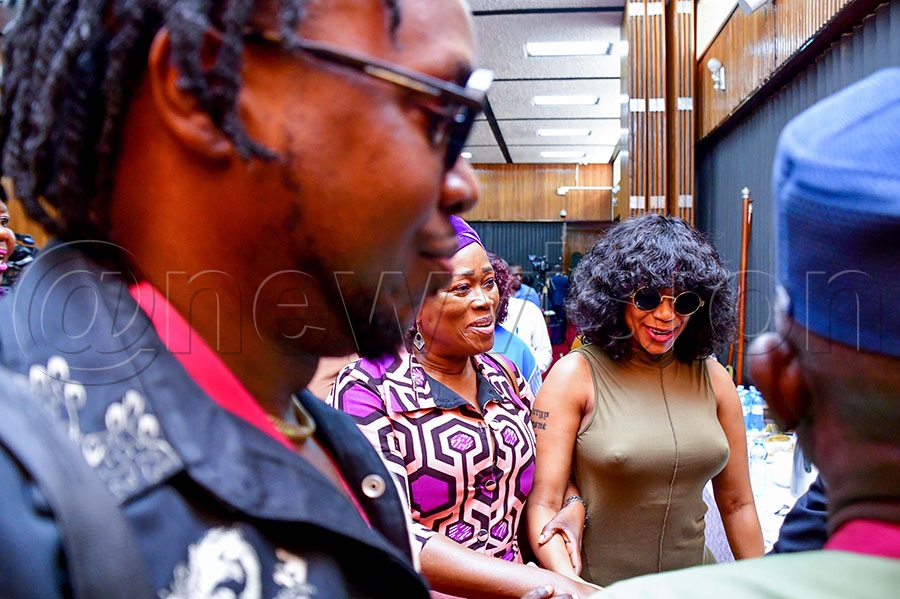
She was among the many others that kept their sunglasses on throughout the sessions. for the uninitiated, sunglasses have developed a reputation for hiding eyes that give a report of a "long last night". When donned in such a building by people known to work mostly last into the night, it raises eyebrows.
Geosteady, who has returned to the public eye from hibernation, was clad in a gigantic necklace of ivory and crowns, with his high chest out.
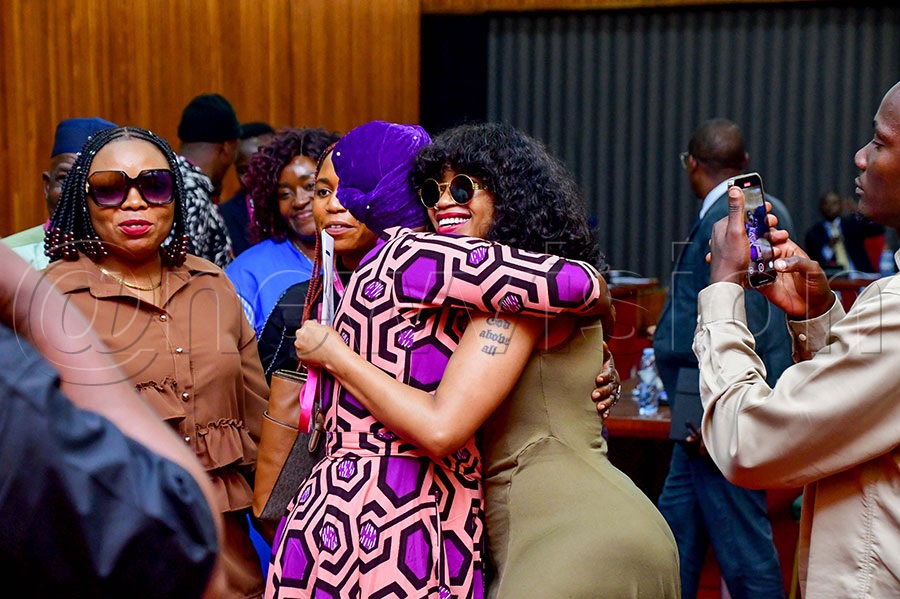
The group breathed a different kind of vibe in what can be perceived to be a sometimes dull parliament. There were more hugs, and waist-holding than most parliaments have seen in the current term.
What the musicians want
While making his submission today, Kalumba said, “We are in full support of the bill as it is, although we understand that some clauses were eliminated."
One of the Achilles’ heels, according to musician Edrissa Musuuza alias Eddy Kenzo’s manager, Martin Muhumuza who also doubles as UNMF’s Director of Research—was remuneration from caller-back ringtones (CRBT).
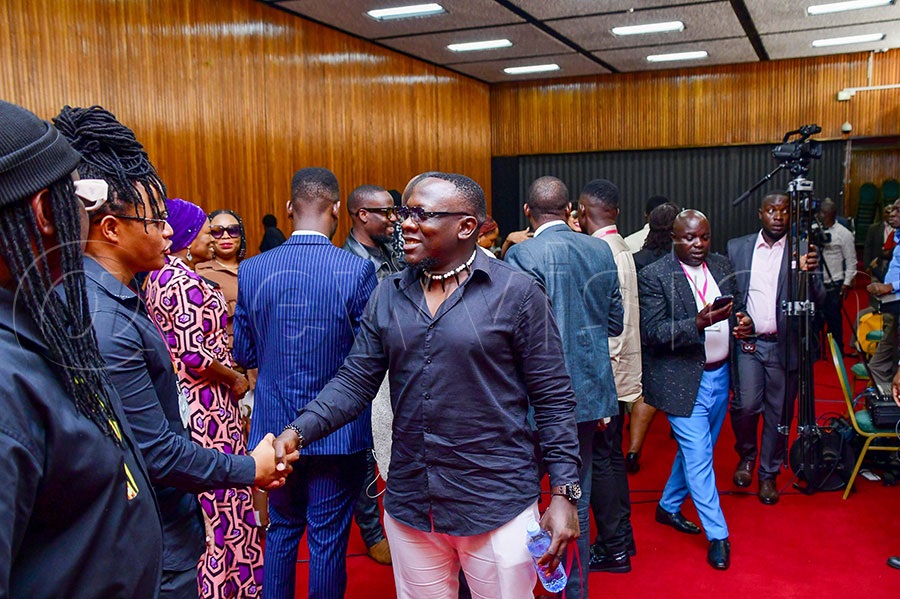
“For the past 15 years, CRBT has not been regulated. The telecom companies were doing as they deemed fit. Imagine the creator of these works was receiving only 1.8 percent collected,” Muhumuza illustrated.
It should be noted that Clause 11 of the Bill seeks to insert, immediately after Section 39A of the Principal Act, a new remuneration structure for authors and performers whose works are used as caller ring-back tones. Under the proposal, the creator would receive 60 percent while operators including telecommunication companies would take 31.5 percent and the aggregator 8.5 percent.
Muhumuza urged that the law should empower Uganda Registration Services Bureau's (URSB) Copyright Directorate by boosting its staffing, noting it would serve as a neutral body. He also called for simplification of the bill’s language, arguing that many of its definitions are not easily understood by his colleagues.
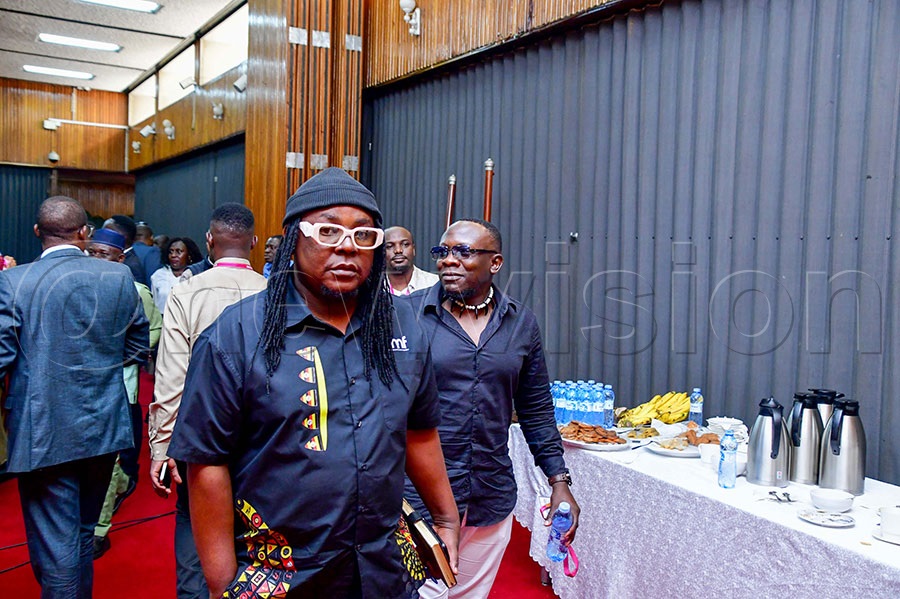
Musicians react
Speaking to New Vision shortly after the interaction, Pius Mayanja (Pallaso) argued that a lot has changed since the principal law was enacted in 2006. “It has been way over due because some of the devices and technology in operation right now didn’t exist during then. With Artificial Intelligence (AI) upon us, we need to fix the Digital landscape," he said.
Private Copying Levy
While the Bill ignored calls to impose a private copying levy on digital transferable gadgets due to what Attorney General (AG) Kiryowa Kiwanuka said were fears that such a levy would raise the cost of products like laptops, smartphones, external hard drives and flash disks, there was a backlash on Wednesday.
The state minister for Gender and Culture Peace Regis Mutuuzo pushed back, insisting they had never agreed to drop the idea.
“It is something, we have not agreed on as Government. While the Ministry of Justice and Constitutional Affairs feels that it will discourage, they are only looking at the academic area and even the argument of stating that somebody is not interested in listening to music, but if the other person on the other side of the call registered a caller back tune and you suddenly call or pick his phone call, won’t you listen to the music?” she posed.
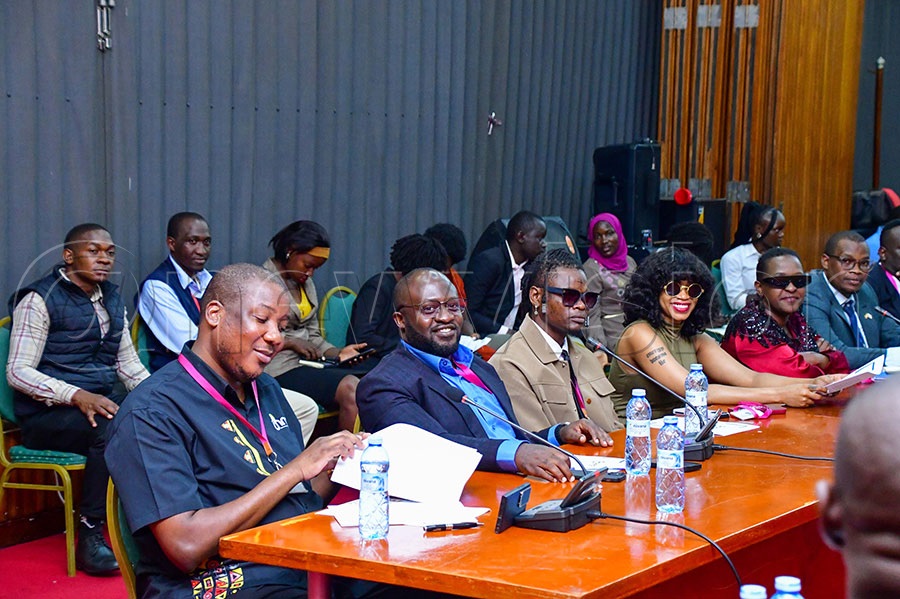
“Even if you are not interested, you have listened to the music. I don’t think there are gadgets where we don’t read some peoples scripts, they are not common. So instead of addressing the character let us address the concern,” Mutuuzo added.
Legal perspective
However, Kenneth Muhangi of the Uganda Law Society (ULS) believes the law is already deterrent enough.
“This is an old debate. In many instances, these creatives are the ones who give this content to the public. And we feel that worldwide, streaming is something that has made things easier. Of course, that is also another discussion on how much they get,” Muhangi opined.
“They are now earning from their music or content played on these platforms. So, a levy like the one mentioned would add more taxes and I feel would make it more difficult for people to be able to access services, since now mobile phones are also tied to things like financial inclusion and learning. So, if that levy is imposed that makes it difficult to access these devices,” he added.